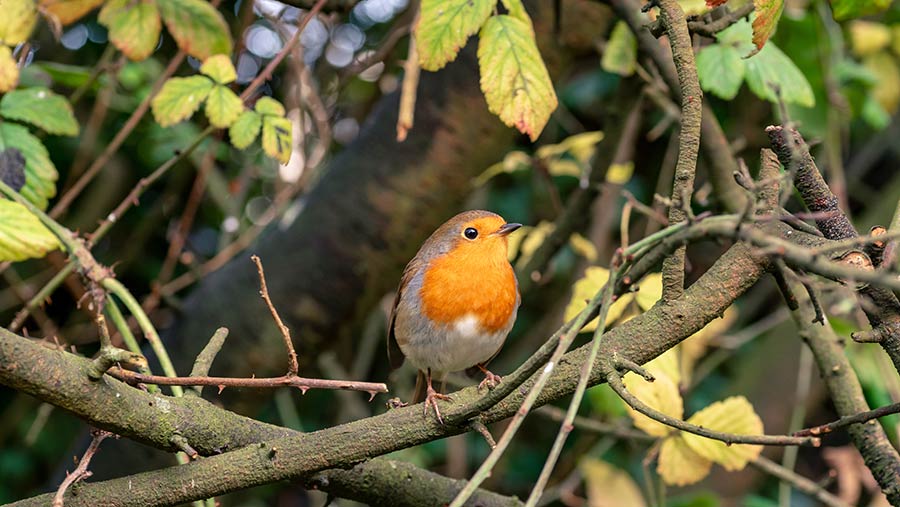End to cross-compliance in 2024 threatens hedges, says RSPB
 © Adobe Stock
© Adobe Stock Bird enthusiasts are warning of potential damage to thousands of kilometres of English hedgerows if current cross-compliance rules are not replaced with regulation by 2024.
Defra’s plans for a new “public money for public goods” approach to farm support certainly contains measures that will encourage and reward hedgerow management, with some of them built into the planned Sustainable Farming Incentive (SFI).
See also: What’s on offer for farmers as the SFI takes shape
However, a new report from the RSPB – Mind the Gap – has found that gaps in environmental protection could occur during the transition from the old Basic Payment Scheme to the new SFI.
“One of these is the level of protection afforded to hedgerows under cross-compliance, which will be removed (in 2024) unless action is taken by Defra to plug this gap,” it says.
Green cover
Currently, cross-compliance requires farmers to maintain green cover on land within 2m of the centre of a hedge, and bans cultivation and the use of fertilisers or pesticides on that land.
It also prevents the cutting or trimming of hedges from 1 March to 31 August, to protect nesting birds.
Without cross-compliance, the RSPB fears farmers who decide not to join SFI or any other Environmental Land Management (ELM) scheme with hedgerow options will no longer have to meet these requirements.
“Even if Defra’s targets for SFI uptake are met, nearly 120,000km of hedgerows will still be at direct risk from mismanagement – a clear step backwards,” says the report.
The RSPB also points out that the SFI is voluntary and, even if 70% of farmers join, they will not have to take up the hedgerow option.
The organisation is therefore calling for the government to plug any regulatory gaps, and to step up inspection and enforcement.
General protection
The need for such action has been questioned by the NFU, however.
NFU senior countryside adviser Claire Robinson said she accepted that some minor gaps might be created by the removal of cross-compliance, but explained that the Wildlife and Countryside Act 1981 was still in place which provided general protections for habitats and birds.
“Hedge cutting dates are an interpretation of that Act and that protection continues outside of cross-compliance,” she said.
Ms Robinson added that, while the bans on cultivating and spraying within 2m of the base of a hedge might not be covered by the Act, there was a need for pragmatism.
“Many hedges extend beyond 2m from their base anyway and, given the price of fertilisers and ag-chems, what farmer is going to start spreading and spraying where it’s not going to make any difference to yields?
“In my experience, our members are very supportive of and value hedgerows, and there is always good uptake of any grant schemes to improve or plant new hedges.”
Level playing field
But the RSPB believes tighter regulation is essential “to provide a level playing field for all farmers, ensuring that the majority trying to do the right thing are not undermined by those seeking to maximise short-term economic gains”.
RSPB policy officer Phil Carson said: “Hedgerows have an important role to play in addressing the nature and climate emergency, supporting a vast array of wildlife and storing significant quantities of carbon.
“We must ensure these vital habitats are protected both now and in the future.”
Defra has been invited to provide a comment.
